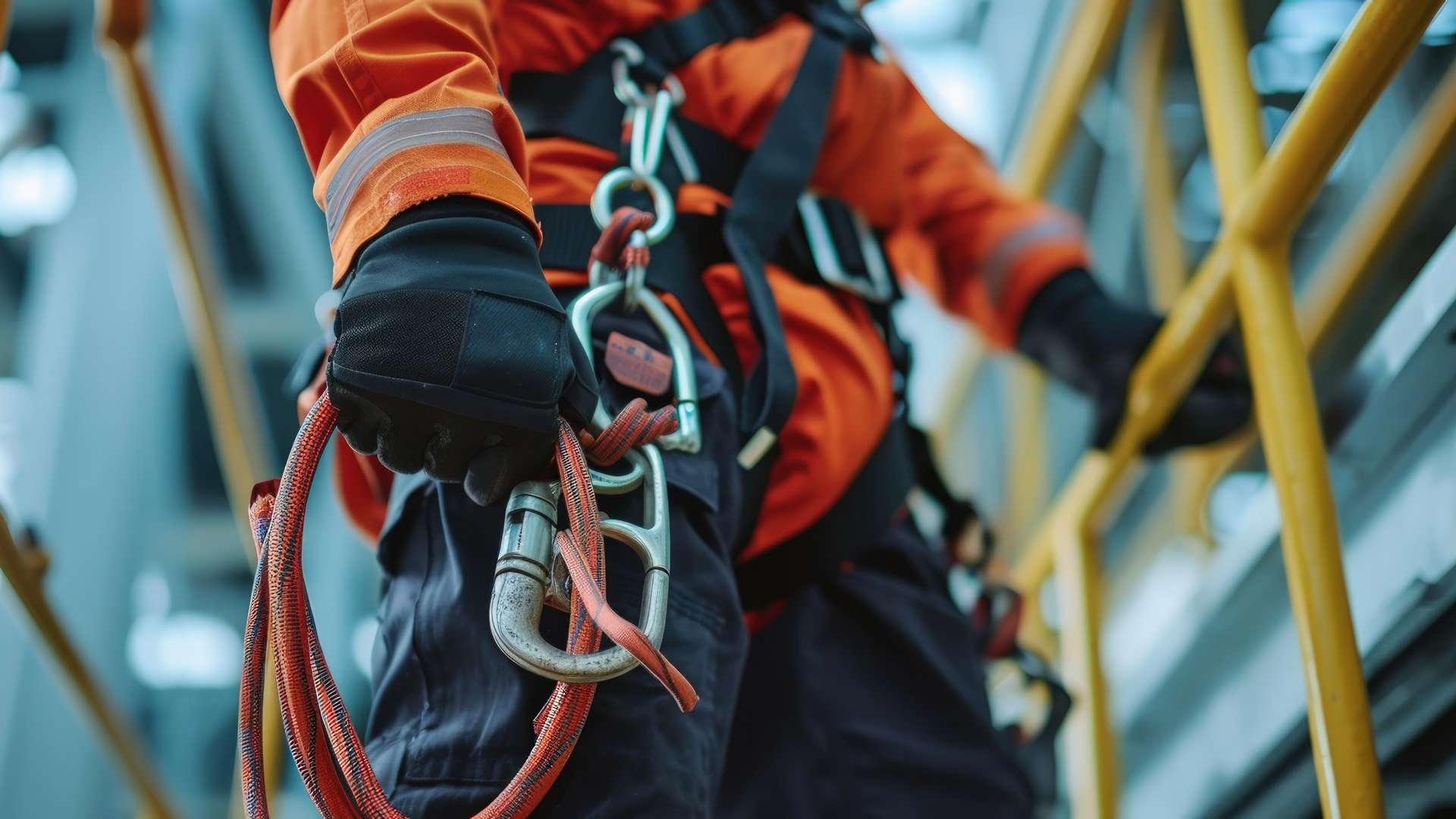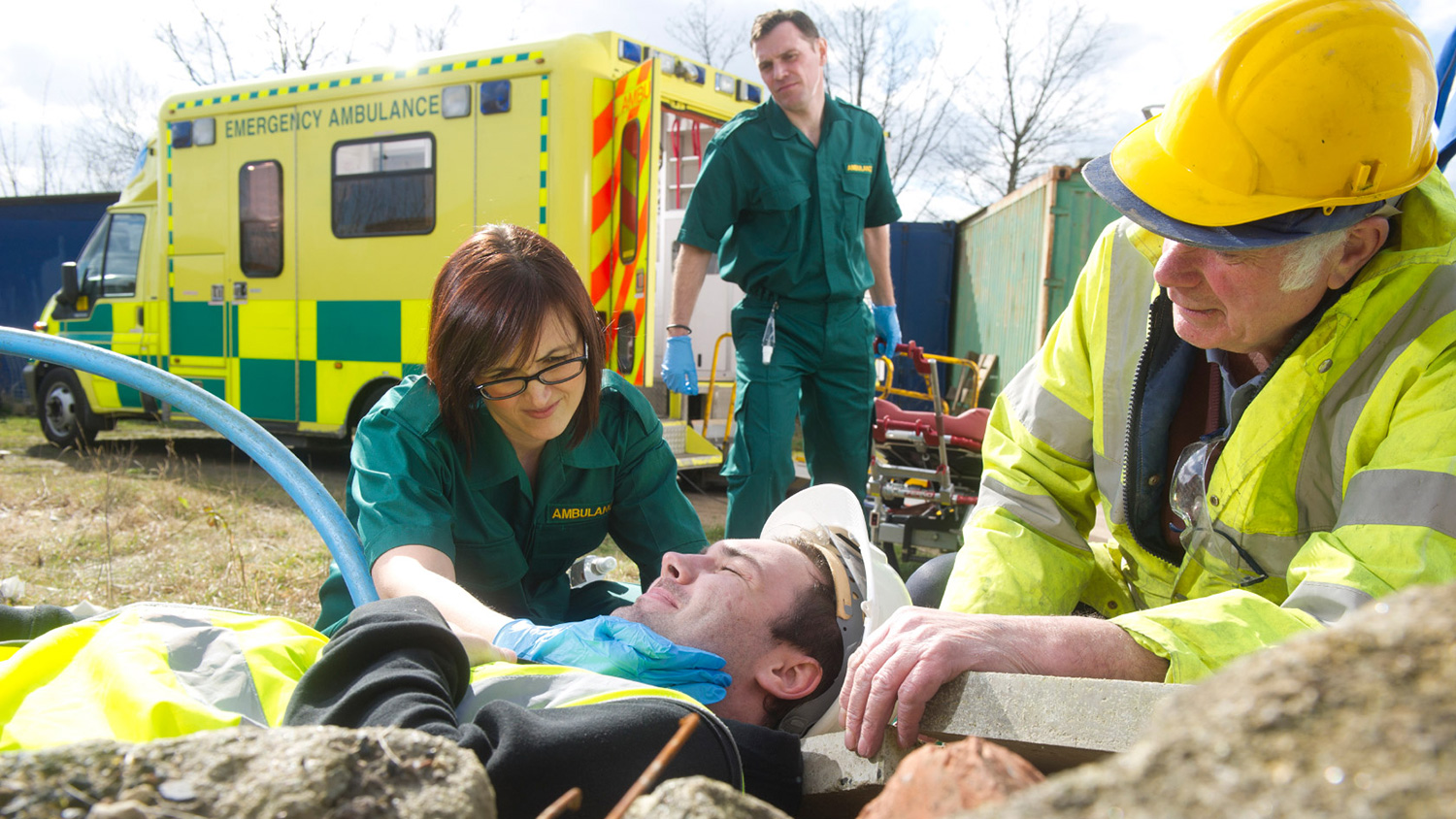We generally focus on the prevention of accidents in the workplace, but when an accident does occur it can have a significant impact if the employer’s follow-up is not sufficient.
Employers have a range of responsibilities to their staff following an accident, which typically involve ensuring the wellbeing and safety of the affected employee while also complying with legal and regulatory requirements.
Immediate medical attention
In the first instance, if an employee is injured in an accident at work, the employer should provide first aid and ensure the injured employee receives appropriate medical care. This might involve calling for emergency medical services if necessary.
The employer must make appropriate first aid arrangements for their workplace. In doing so you should consider the circumstances of your workplace, workforce and the health and safety risks that may be present to help you decide what arrangements you need to put in place.
Some small, low-risk workplaces need to have only a first-aid box and a person appointed to take charge of first-aid arrangements such as calling the emergency services and stocking the first-aid box. The appointed person does not need specific first-aid training.
If your workplace has more significant health and safety risks (for example, you use machinery or hazardous materials) then you are more likely to need a trained first-aider.
Reporting and documentation
Under the Reporting of Injuries, Diseases and Dangerous Occurrences Regulations 2013 (RIDDOR), employers are required to report certain workplace accidents, injuries, diseases and dangerous occurrences to the HSE. This includes accidents resulting in death, major injuries, certain types of illnesses and specific dangerous incidents.
Keeping records will help you to identify patterns in the incidence of accidents and injuries and will help when completing your risk assessment. Your insurance company may also want to see your records if there is a work-related claim.
The accident book is an essential document for employers and employees, who are required by law to record and report details of specified work-related injuries and incidents. It enables businesses to comply with legal requirements under social security and health and safety legislation, including RIDDOR requirements.
Accident investigation
Employers should conduct a thorough investigation into the accident to determine its cause and identify any contributing factors. This helps prevent future accidents and can also be used for legal and insurance purposes.
Carrying out your own health and safety investigations will provide you with a deeper understanding of the risks associated with your work activities.
Health and safety investigations are an important tool in developing and refining your risk management system. An effective investigation requires a methodical, structured approach to information gathering, collation and analysis. The findings of the investigation will form the basis of an action plan to prevent the accident or incident from happening again and for improving your overall management of risk. Your findings will also point to areas of your risk assessments that need to be reviewed.
Safety improvements
If the accident was due to unsafe working conditions, the employer should take steps to address those conditions and make necessary improvements to prevent similar accidents in the future. This might involve modifying processes, providing additional training or supplying appropriate safety equipment.
Communication
Employers should keep the affected employee and their family informed about the situation and any steps being taken to address it. Clear communication is essential to maintaining trust and ensuring the employee's wellbeing.
Workers' compensation
If the accident results in injury or disability that prevents the employee from working, the employer may be responsible for providing workers' compensation benefits. These benefits typically include medical coverage, wage replacement, and vocational rehabilitation if needed:
- Workers' compensation: under the UK's workers' compensation system, employers are generally required to provide compensation to employees who are injured or become ill as a result of their work. This compensation typically covers medical expenses, lost wages, and sometimes additional benefits. If the accident is work-related and falls under the scope of workers' compensation, the employer is obligated to cover these costs.
- Employment contract and policies: the terms of the employment contract and any company policies may outline how accident-related costs are handled. Some employers might provide additional benefits beyond what is legally required, such as covering certain medical costs or offering more generous sick leave.
- Negligence and liability: if the employer's negligence or unsafe practices contributed to the accident, there might be a legal obligation to cover the employee's costs. This could include medical expenses, compensation for pain and suffering, and other related expenses.
- Insurance coverage: many employers in the UK have liability insurance or employers' liability insurance as part of their legal obligations. This insurance can help cover costs associated with workplace accidents. The terms and coverage of the insurance policy will determine which costs are covered.
- Goodwill and employee relations: even if not legally required, covering certain costs after an accident can demonstrate goodwill and a commitment to employee wellbeing. This can help maintain a positive relationship with employees and foster a supportive work environment.
Job adjustments
If the employee is able to return to work but requires certain adjustments due to their injuries, the employer should make reasonable efforts to provide those accommodations to ensure a safe and productive work environment.
The Equality Act 2010 addresses discrimination, harassment and victimisation in the workplace. In the context of workplace accidents, it requires employers to make reasonable adjustments for employees who have become disabled as a result of an accident.
Emotional support
Accidents can have emotional and psychological effects on employees. Employers should offer emotional support or provide access to counselling services if necessary.
Training and prevention
Employers should use accidents as learning opportunities. They should provide additional training to employees to prevent similar incidents in the future and implement changes to the safety protocols if needed.
Preventing accidents and ill health caused by work should be a key priority for everyone at work.
Providing health and safety information and training helps you to:
- Ensure you or your employees are not injured or made ill by the work they do;
- Develop a positive health and safety culture, where safe and healthy working becomes second nature to everyone;
- Find out how you could manage health and safety better; and
- Meet your legal duty to protect the health and safety of your employees.
Effective training will:
- Contribute towards making your employees competent in health and safety;
- Help your business avoid the distress that accidents and ill health cause; and
- Help you avoid the financial costs of accidents and occupational ill health.
International Workplace's Accident and Incident Reporting training course will help learners develop their understanding and skill set to be able to complete and process accident report forms, whilst improving their investigation techniques and practiceing.
This training course has been developed by the health and safety experts at International Workplace and can be delivered via virtual classroom or face-to-face classroom training. As this course has been designed by us, we can tailor the content to suit your companies policies and procedures.
Our accident and incident course is suitable for supervisors, managers, safety professionals or anyone who is responsible for safety in a workplace.
You may also be interested in
RELATED CONTENT
RELATED CONTENT

The Emergency first aid course offers learners the skills and knowledge to deal with emergency first aid situations at work.

The Slips, trips and falls course explains the measures that can be implemented to prevent slips, trips and falls in the workplace.

Introduction to health and safety gives learners a basic introduction to managing safety in their workplace.

The Working at height course helps learners understand the dangers associated with working at height and ways to control the risks

The Access Industry Forum (AIF), the forum that represents the principal work at height trade associations and federations, is calling for clearer rep...

New IOSH President Stuart Hughes is calling on the profession to challenge itself to develop new ways of tackling the “unacceptably high” number of wo...

You may not realise it but there’s no legal duty on an employer to carry out an investigation into an incident in the workplace. But, says law firm rr...

Employers are increasingly likely to go unpunished after workplace accidents it seems, as research by Prospect Union reveals the number of investigati...